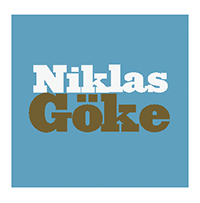

Asked in an interview what brought about his remarkable transition, von Hirschhausen recounts a story. Once upon a time, he went to a zoo in Norway. Looking at a penguin waddling around his enclosure, he thought: “Poor bastard. He can’t fly, he’s fat, and the creator even forgot to give him knees.” But then he went down a flight of stairs, and suddenly, his penguin swam by behind a glass window, looking at him, and von Hirschhausen thought: “Wow. Now, this guy is pitying me.”
“If you’ve ever seen a penguin in water,” he recalls, “you know they can fly — as soon as they’re in their element. In fact, with the energy you’d get out of one liter of fuel, they could travel 2,000 kilometers. That’s more efficient than anything humans have been able to come up with — and yet, here I was, thinking this guy is a total case of faulty design.”
Von Hirschhausen learned two things from this experience, he says. The first was about how quickly we judge people, even if we’ve observed them in only a single situation, and how wrong we can be in those assessments. The second was this: “Your strengths only shine when you’re in your element.”
“If you’re born as a penguin, even seven years of therapy won’t turn you into a giraffe. It doesn’t matter how much you’d like to have a really long neck. What matters is: Who are you? What can you do? And what do you want? And if I’m a penguin and find myself in the desert, then I needn’t be surprised why things aren’t going well. And in that case, it’s not important how I got there or whose fault that was. The question is: How do I get out of here? Back into my element.”
As a doctor, von Hirschhausen struggled with doing things in a set order, time and time again. He wasn’t good with routine, and in a hospital, routine keeps both you and your patients alive and sane. What he was good at was coming up with new insights on the fly which, when you’re giving patients a diagnosis, also doesn’t help. In other words, von Hirschhausen was a penguin in the desert — and he needed to get out of there.
Nowadays, through his books and public appearances, von Hirschhausen brings questions of health and wellness to a broad audience. He uses comedy and stories to make science more accessible, and that too is a service, just a different one than treating people one-on-one.
Who are you? What can you do? And what do you want? Don’t obsess about fixing your shortcomings. Find your element. Get out of the desert. Dare to jump in at the deep end. Risk a dive into the water, and sooner or later, you will find: “I may be a penguin — but I can still fly.”
Grab a copy of Nik’s new book, 2-Minute Pep Talks.
2-Minute Pep Talks is a collection of 67 jolts of inspiration for more hope, comfort, and love in any situation. With more than two months of daily inspiration across five categories, 2-Minute Pep Talks will make you feel more comfortable in your own skin, remind you to love yourself enough to ask life for what you truly want, and provide you with the world’s scarcest resource: hope. Whether you’re looking for a pick-me-up, new perspectives, or more fuel to accomplish your dreams — if you’re ready to regain that light, passionate, optimistic feeling we all used to possess as children, this book is for you.
AVAILABLE NOW ON AMAZON!

—
This post was previously published on Niklas Göke’s blog.
***
You Might Also Like These From The Good Men Project
 |
 |
 |
 |
Join The Good Men Project as a Premium Member today.
All Premium Members get to view The Good Men Project with NO ADS.
A $50 annual membership gives you an all access pass. You can be a part of every call, group, class and community.
A $25 annual membership gives you access to one class, one Social Interest group and our online communities.
A $12 annual membership gives you access to our Friday calls with the publisher, our online community.
Register New Account
Need more info? A complete list of benefits is here.
—
Photo credit: iStock.com
